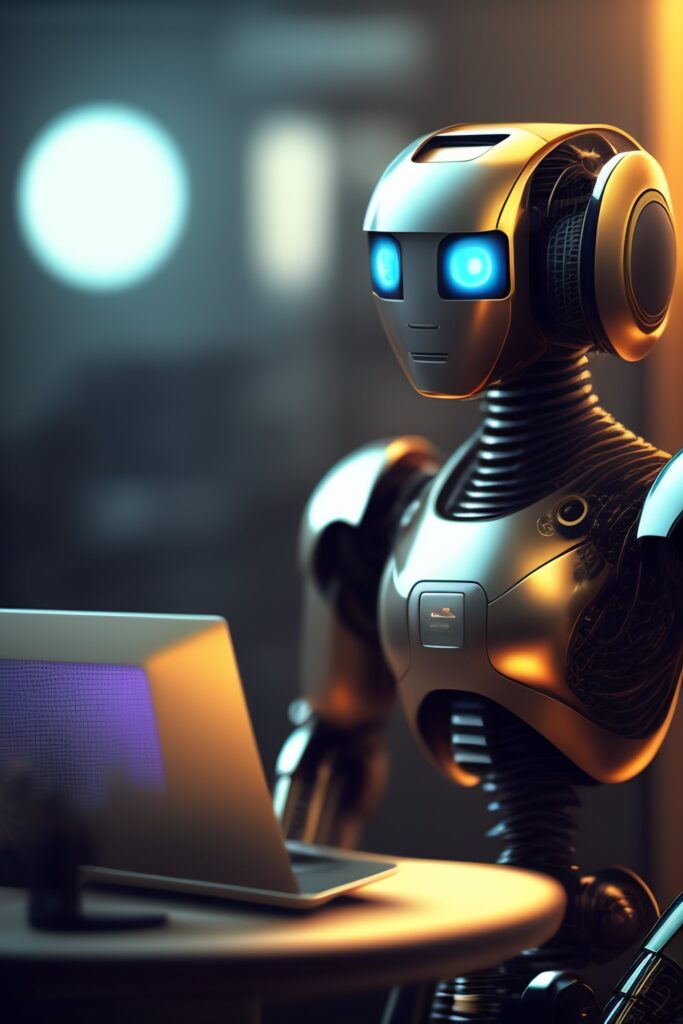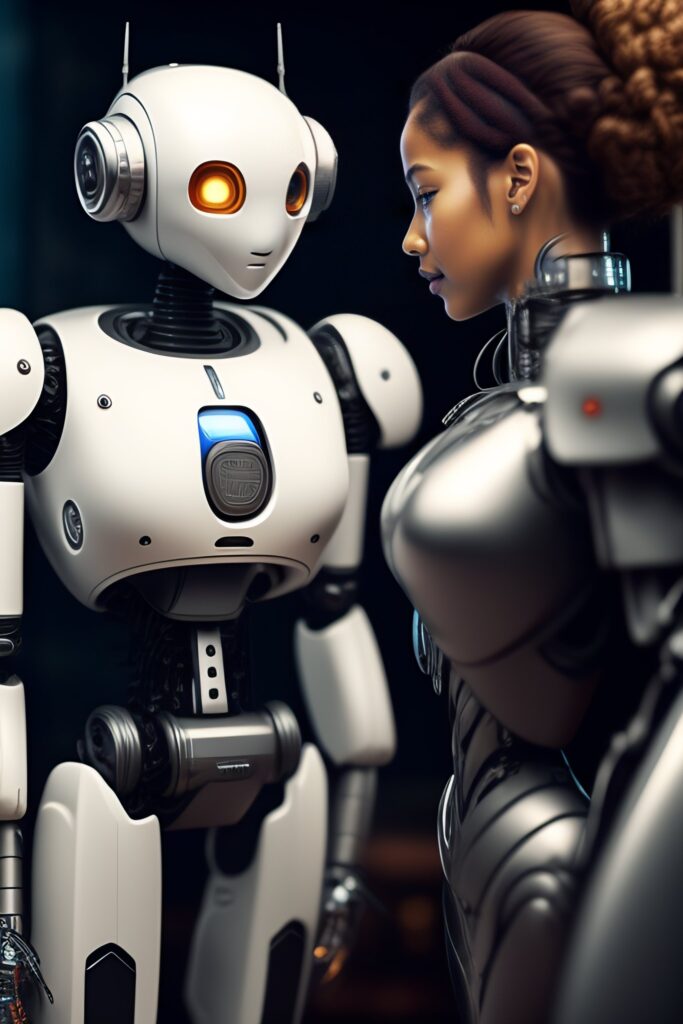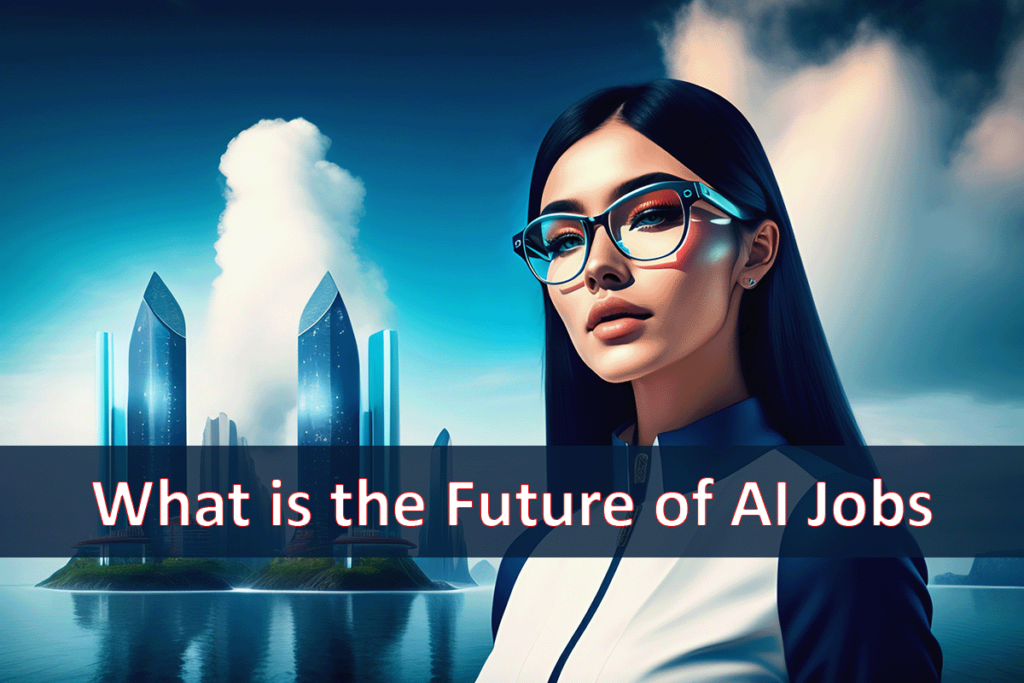Table of Contents
In the ever-evolving landscape of technology, artificial intelligence (AI) has emerged as a revolutionary force, reshaping industries and prompting discussions about the future of jobs. As we delve into the implications of AI on employment, we find ourselves at a crossroads of challenges and opportunities. In this article, we explore the ways AI is poised to impact various sectors and discuss strategies to adapt and thrive in this rapidly changing environment.
The AI Disruption: Separating Fact from Fiction
The recent study on jobs at risk from AI automation has stirred debates about the fate of traditional job roles. However, it’s crucial to approach this topic with a balanced perspective. While AI undoubtedly has the potential to automate certain tasks, it also opens doors to novel career opportunities. Rather than focusing solely on job displacement, we must recognize AI’s capacity to augment human capabilities and create new realms of innovation.

A Paradigm Shift in Employment Dynamics
Industries across the board are experiencing a paradigm shift in their employment dynamics. Roles that involve repetitive, rule-based tasks are most susceptible to automation. Routine manufacturing jobs, data entry positions, and basic customer service roles are examples of tasks that can be efficiently handled by AI systems. However, as jobs evolve, they will demand higher levels of creativity, emotional intelligence, and problem-solving skills—areas where human beings excel.
Navigating the Change: Upskilling and Reskilling
To stay ahead in this AI-powered landscape, individuals and organizations alike need to prioritize upskilling and reskilling. The ability to adapt to new technologies and acquire advanced skills will be paramount. Sectors such as healthcare, finance, and education are experiencing significant transformations, with a growing demand for professionals who can bridge the gap between AI and human expertise.
Embracing Collaborative Intelligence
Rather than viewing AI as a standalone entity, we must embrace the concept of collaborative intelligence. By integrating AI tools into our workflows, we can harness their analytical capabilities to make informed decisions. Businesses can utilize AI-driven insights to enhance customer experiences, streamline operations, and develop innovative products and services.
The Evolution of Entrepreneurship
The AI era also paves the way for aspiring entrepreneurs to reimagine business models. Startups and enterprises can leverage AI to identify market trends, personalize offerings, and optimize resource allocation. The fusion of human ingenuity with AI-driven insights is driving the next wave of disruptive innovation.

Ethical Considerations and Societal Impact
As AI gains prominence, ethical considerations, and societal impact become increasingly relevant. Transparent and responsible AI deployment is crucial to preventing biases and ensuring fairness. Additionally, discussions around job displacement should go hand in hand with conversations about redefining work, promoting work-life balance, and fostering lifelong learning.
FAQ: Navigating the Future of Jobs in the Age of AI
Q1: What is the “Future of Jobs” in the context of AI?
A1: The “Future of Jobs” refers to the changing landscape of employment as influenced by the rise of artificial intelligence (AI). It encompasses the transformations, challenges, and opportunities brought about by AI technologies in various industries.
Q2: How is AI expected to impact traditional job roles?
A2: AI is expected to automate certain routine and repetitive tasks, leading to the displacement of roles centered around such activities. This evolution necessitates the development of new skill sets that emphasize creativity, problem-solving, and emotional intelligence.
Q3: What sectors are most susceptible to AI-induced changes in employment?
A3: Sectors that involve rule-based and routine tasks, such as manufacturing, data entry, and basic customer service, are more susceptible to AI-induced changes. These tasks can be efficiently handled by AI systems, leading to a shift in the nature of jobs within these sectors.
Q4: How can individuals adapt to the changing job landscape driven by AI?
A4: To adapt to the changing job landscape, individuals should prioritize upskilling and reskilling. Developing skills that align with the evolving demands of industries, such as advanced data analysis, programming, and critical thinking, will be essential.
Q5: What role does collaborative intelligence play in the future of jobs?
A5: Collaborative intelligence involves integrating AI tools into human workflows to enhance decision-making processes. By utilizing AI-driven insights, businesses can make informed choices that lead to improved customer experiences, streamlined operations, and innovation.
Q6: How does the evolution of jobs impact entrepreneurship?
A6: The evolution of jobs due to AI opens up avenues for entrepreneurs to innovate and reimagine business models. Startups and enterprises can leverage AI to identify market trends, tailor offerings, and optimize resource allocation, thus driving disruptive innovation.
Q7: What ethical considerations are associated with AI and the future of jobs?
A7: Ethical considerations include ensuring transparent and responsible AI deployment to prevent biases and ensure fairness. Discussions around job displacement should also address societal impact, redefine work, work-life balance, and promote continuous learning.
Q8: What steps can individuals take to remain competitive in an AI-dominated job market?
A8: To remain competitive, individuals should stay curious about emerging technologies, cultivate adaptability, continuously learn new skills, and actively seek out opportunities for collaboration with AI systems to enhance their productivity and expertise.
Q9: How can individuals prepare for the future of jobs while maintaining job security?
A9: Individuals can maintain job security by embracing lifelong learning, staying updated on emerging technologies, and actively participating in upskilling and reskilling programs. By adapting and acquiring new skills, individuals can stay relevant in the evolving job market.
Q10: What mindset is essential for thriving in the AI-driven future of jobs?
A10: A growth mindset is essential for thriving in the AI-driven future of jobs. Embracing change, cultivating adaptability, and fostering a willingness to learn are key attributes that will enable individuals to navigate and excel in the evolving employment landscape.
Q11: Can AI completely replace human jobs?
A11: While AI can automate certain tasks, the complete replacement of human jobs is unlikely. The focus should be on the augmentation of human capabilities through AI, allowing humans to focus on tasks that require creativity, critical thinking, and emotional intelligence.
Q12: How can organizations ensure a smooth transition during AI integration?
A12: Organizations can ensure a smooth transition by providing comprehensive training programs for employees, fostering a culture of innovation and adaptability, and clearly communicating the benefits of AI integration to all stakeholders.
Q13: Are there any new job roles emerging due to AI?
A13: Yes, AI is creating new job roles such as AI trainers, data scientists, machine learning engineers, and AI ethicists. These roles are centered around developing, managing, and ensuring the ethical use of AI technologies.
Q14: What are the potential economic implications of AI for employment?
A14: The economic implications of AI on employment are complex. While AI may lead to job displacement in certain sectors, it can also drive economic growth through increased productivity, new business opportunities, and the creation of innovative products and services.
Q15: How can governments contribute to managing the impact of AI on jobs?
A15: Governments can play a role by implementing policies that support upskilling and reskilling initiatives, fostering a conducive environment for innovation and entrepreneurship, and ensuring ethical AI deployment through regulations.
Q16: Is the fear of AI taking over jobs justified?
A16: The fear is understandable, but it’s important to view AI as a tool that can complement human capabilities. Historical examples of technological advancements have shown that new opportunities and roles often emerge alongside automation.
Q17: What is the relationship between AI and job satisfaction?
A17: AI has the potential to enhance job satisfaction by automating repetitive tasks, allowing employees to focus on more fulfilling and creative aspects of their work. It can also provide data-driven insights that contribute to better decision-making.
Q18: Can AI contribute to diversity and inclusion in the workplace?
A18: Yes, AI can help promote diversity and inclusion by reducing bias in hiring processes, facilitating language translation, and offering accessibility features that cater to diverse needs.
Q19: How can educational institutions adapt to prepare students for AI-related careers?
A19: Educational institutions should incorporate AI-related curricula, offer courses in data science, machine learning, and ethics, and provide experiential learning opportunities that equip students with practical skills for the AI-powered job market.

Conclusion: The Future of Jobs in the Age of AI
In conclusion, the evolving landscape of AI brings both challenges and opportunities for the future of jobs. Rather than fearing automation, we should adapt our skill sets to align with the changing demands of the job market. The synergy of human creativity and AI capabilities promises a future of innovation, growth, and transformation. By embracing change and fostering a culture of continuous learning, we can position ourselves to not only survive but thrive in the age of AI.

10 thoughts on “The Future of Jobs in the Age of AI: Embracing Change and Transformation”